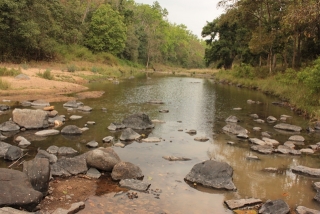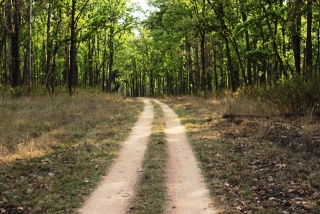Society, Culture, Religion and History
wH2O: The Journal of Gender & Water of the University of Pennsylvania calls for abstracts on gender and water issues - Submit by August 15, 2012
Posted on 05 Jul, 2012 12:15 PM

wH2O is an online, open-access academic journal for women and water issues around the world. Our vision is to publish a yearly journal; provide a centralized hub for women, water and sanitation information; and eventually, be able to provide research grants to facilitate more research in this space. Our mission is to advance women’s economic and social development by creating a centralized body of interdisciplinary research on water and sanitation issues.
Monsoon Regatta presents Waterscapes, Muse Art gallery, The Yacht Club of Hyderabad and Arghyam, June 23 to July 8, 2012, Muse Art Gallery, Hyderabad
Posted on 20 Jun, 2012 11:17 PMOrganiser: Muse Art Gallery, Arghyam, and The Yacht Club of Hyderabad
Venue: Muse Art Gallery
II Floor, Skyway
Hyderabad Marriott Hotel,
Hussain Sagar
Water commercialization, a threat to human rights - A Gandhian prospect
Posted on 17 May, 2012 11:00 AMProviding usable water is one of the toughest challenges that most of the countries of the world are facing today. And in an era of liberalization and domination of capital centric policies commercialization of water is not a shocking step.
Women and sustainable development - Women’s empowerment is a key factor for achieving sustainable economic growth
Posted on 13 May, 2012 02:50 PMSustainable development depends on an equitable distribution of resources for today and for the future. It cannot be achieved without gender equality. Women’s empowerment is a key factor for achieving sustainable economic growth, social development and environmental sustainability.
Seminar on "Majuli Cultural Landscape: Heritage Values and Future", Majuli Cultural Landscape Management Authority, Guwahati, May 12, 2012
Posted on 11 May, 2012 12:52 PMOrganiser: Majuli Cultural Landscape Management Authority
Venue: NEDFI House,
Guwahati

Teesta, Tipaimukh and riverlinking: Danger to Bangladesh-India relations – A paper in Economic and Political Weekly
Posted on 06 May, 2012 11:25 AMBangladesh shares 54 rivers with India. Any unilateral action by India on any of its international rivers will degrade its relations with its neighbours while also adversely affecting its ecology, economy and society. Bangladesh being a riverine and a lower riparian country remains sensitive to matters of water, whether inland or maritime.
Septic tanks or death tanks! We need to improve sanitation facilities to eradicate the inhuman practice of manual scavenging
Posted on 05 May, 2012 03:18 PMAuthor : Gagandeep
“We have to end the biggest dehumanising activity called manual scavenging”
Occupational health hazards in sewage and sanitary workers - A paper published in the Indian Journal of Occupational and Environmental Medicine
Posted on 04 May, 2012 03:59 PMWorking conditions of the sanitory workers have found to remain unchanged over the years and pose a considerable risk to the dignity and health of the workers.
The Supreme Court and its directions on Interlinking of Rivers (ILR): India and her people will be greatly benefited by its implementation
Posted on 03 May, 2012 07:03 PMAuthor : J. Prabudoss
The original Jungle Book: A visit to Kanha National Park, Madhya Pradesh
Posted on 28 Apr, 2012 12:37 AM

Kanha National Park, Madhya Pradesh





